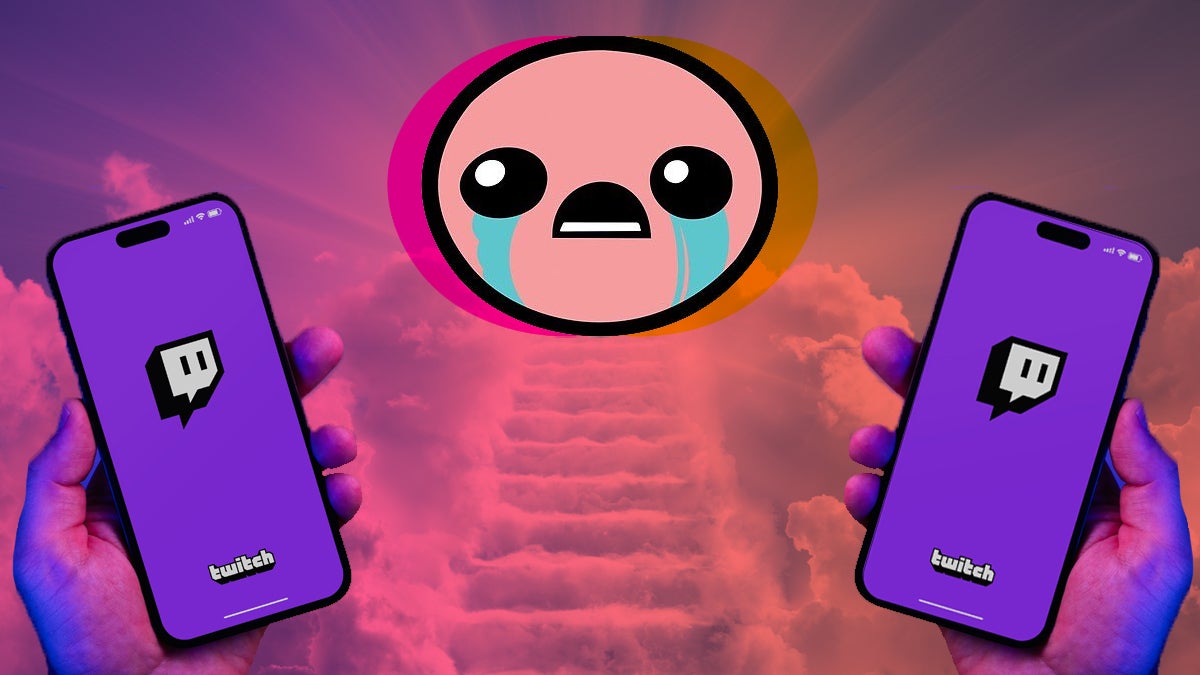
The BibleThump Twitch emote is officially retired. Last week, Twitch tweeted that “the rights to our beloved emote expire” at the end of September, and they were going to need something to replace the image of a crying child from the video game “Binding of Isaac.”
So after around 18,000 votes in an X poll, the Amazon-owned platform announced that it would instead be using BigSad, a paltry purple imitation (Twitch did not respond to a request for comment).
The backlash was immediate, with many social media users going directly to the creator of “Binding of Isaac,” Edmund McMillen.
“I would let them just use it,” McMillen told Passionfruit. “But the thing is, they kind of framed it like they’re so upset that it expired and they can no longer use it.”
The game developer added on social media that he is “fine with coming up with a good solution to keep or modify the emote” but is “not in control of the new Twitch policies.”
Twitch emotes have been around since the early aughts (when the site was simply called Justin.TV) and are a crucial part of the site’s culture and continued relevance. By writing a phrase in chat, an image appears that is used like hieroglyphics, expressing about as much emotion as a parasocial internet relationship can handle.
BibleThump was added in 2013 and has become the de-facto way for viewers to share their sadness or sorrow in a streamer’s chat. Whether your favorite creator loses a match of Fortnite at the last second or the cake they bake ends up burning in the oven, that single image will be spammed.
It’s one of over 100 global emotes that work in every single chat room across all of Twitch. According to StreamElements, BibleThump is currently the 27th most used emote on the whole platform. Alongside another emote based on McMillen’s “Meatboy” game, it was the last global option to feature another’s company intellectual property.
McMillen told Passionfruit that there was no licensing deal for the emote until Amazon purchased the platform for almost $1 billion in 2014 and set up a contract. Before the license was set to expire, McMillen said that he was in contact with Amazon but conversations barely moved forward, that “there was never a discussion of money” and “they won’t reply to my emails anymore.”
Removing a huge part of Twitch’s legacy seems like a move focused on corporate synergy above brand awareness. Over the past few years, Twitch has been dealing with declining revenue and new CEO Dan Clancy’s weird decisions, like pushing confusing music-based updates and buggy co-streaming updates.
There have even been global emote scandals, with the face of Pogchamp (used to convey happiness) having to be replaced by a snake in 2021 after he made some controversial posts about January 6th.
Twitch has always stood out from its live-streaming competitors because its site identity was so strong. McMillen shared that while at the playground with his kids, other parents would have no idea about the games he made, but those who watched Twitch recognized the little crying blob face immediately.
Though the emote might be getting sunsetted, McMillen still “wants to preserve the legacy.” He is looking into “third party options” like apps that allow you to use other emotes on Twitch that show up to others with the same program. He’s also looking into allowing “everybody who wants to put BibleThump back in for their own channel” using Twitch’s custom emote program. Though it’s not the same thing as having a global emote, it’s the best binding for now.




